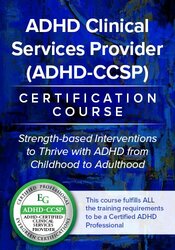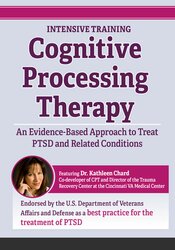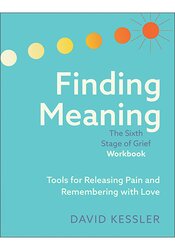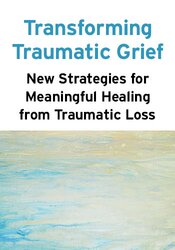Flexible, self-paced learning—no fixed schedule required.
Helping Teens Cope with Grief After Death by Suicide
December 19, 2022
When the unthinkable happens, it's tough to find the words to help teens understand they are not to blame. David Kessler offers up advice on what to say and how to help teens cope with the grief of death by suicide in the school setting.

How do you recommend talking with teens in the school setting when they blame the girlfriend or boyfriend for the suicide?
-Jodi
Dear Jodi,
It's so tragic because teenagers will have impulsive deaths by suicide and we often hear this comes up after relationship issues or breakups.
I would normalize it for the teenagers and for the boyfriends and girlfriends who find themselves in this or similar situations. Breaking up and having relationship issues are normal events -- and a death by suicide is not a normal event. We cannot blame ourselves for that. We have to remind that teenager going through this that they were just living their lives. They did not know their actions would contribute or cause a death. We have to help those teenagers not blame themselves.
We also need to change how we look at mental health issues. We need to let teenagers know that seeing a therapist is not a problem or a weakness they have. The same way we maintain our air conditioners and our computers, we need to maintain our bodies and our minds. When we take the stigma out of mental health issues among teenagers, we can talk openly about our mental health issues and challenges.
Thanks for reading.
-David Kessler
-Jodi
It's so tragic because teenagers will have impulsive deaths by suicide and we often hear this comes up after relationship issues or breakups.
I would normalize it for the teenagers and for the boyfriends and girlfriends who find themselves in this or similar situations. Breaking up and having relationship issues are normal events -- and a death by suicide is not a normal event. We cannot blame ourselves for that. We have to remind that teenager going through this that they were just living their lives. They did not know their actions would contribute or cause a death. We have to help those teenagers not blame themselves.
We also need to change how we look at mental health issues. We need to let teenagers know that seeing a therapist is not a problem or a weakness they have. The same way we maintain our air conditioners and our computers, we need to maintain our bodies and our minds. When we take the stigma out of mental health issues among teenagers, we can talk openly about our mental health issues and challenges.
Thanks for reading.
-David Kessler
David Kessler on Healing Grief & Loss

Give your clients the tools and guidance they need to create a healthy, personalized grieving process free from judgement, insecurity and shame. Join world-renowned grief expert, David Kessler, to discover the most cutting-edge guidelines of grief treatment in this transformative online course.
These new approaches have evolved the 5 Stages Model, as well as other models, and are designed to help you meet your clients where they are in the grieving process—without classifying them or putting them on a timeline. They give you the tools and language to talk with your clients about grief and grieving in deeper, more meaningful ways… So your clients can feel free of internal judgment and shame, thinking they should be “grieving better” than they are because they’re making others uncomfortable.
These new approaches have evolved the 5 Stages Model, as well as other models, and are designed to help you meet your clients where they are in the grieving process—without classifying them or putting them on a timeline. They give you the tools and language to talk with your clients about grief and grieving in deeper, more meaningful ways… So your clients can feel free of internal judgment and shame, thinking they should be “grieving better” than they are because they’re making others uncomfortable.




























